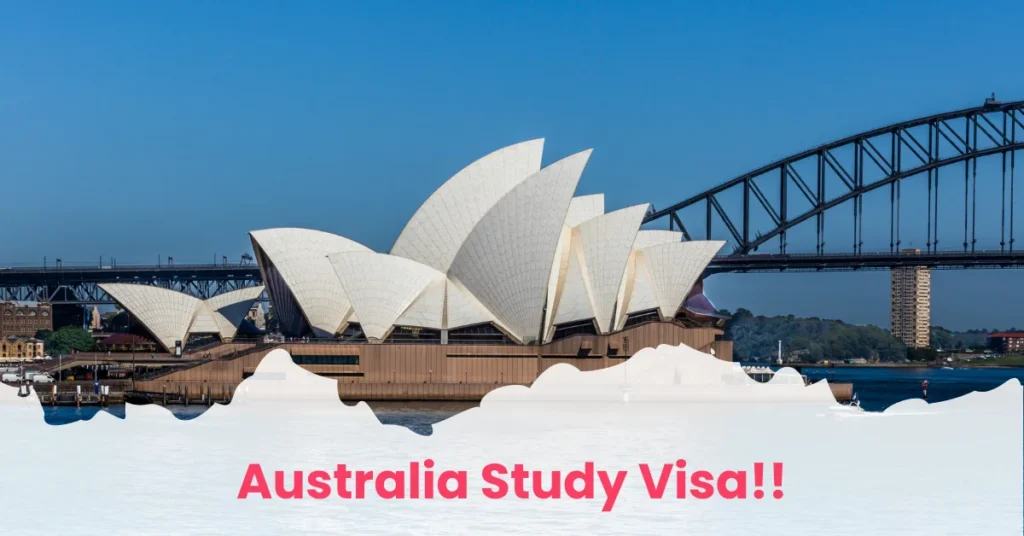The Netherlands is also a great destination for international students from all over the world.
The country has a strong economy and a low unemployment rate. Many international graduates stay in the Netherlands after graduation because of the many job opportunities and the high quality of life.
According to the Netherlands Organisation for International Cooperation in Higher Education, in the 2022-23 academic year, there were over 122,287 international students studying in the Netherlands. This number has been growing steadily in recent years.
If you are planning your career in the Netherlands, you are in the right place. In this article, we will discuss requirements, fees, student visas, immigration, types of study programs, best universities, and a whole lot more.
Why study in the Netherlands?
If you ask us, there are many reasons to study in the Netherlands. Here are just a few:
- High-quality education: The Netherlands has a world-renowned education system, and its universities are ranked among the best in the world.
Dutch universities offer a wide range of programs from undergraduate to PhD level, and many programs are taught in English. About 2,000 programs are taught entirely in the English language. Also, 95% of the Dutch speak English, so it is easy to communicate easily.
- Affordable Education: The quality of Dutch education is well-recognized. The tuition fees and living costs are much more affordable than in English-speaking countries in the world.
The Netherlands also offers many scholarships to international students to help them pursue their education. Dutch education is interactive and student-centered. It will help you to develop your skills such as analyzing, solving practical problems, and creative thinking.
- International student-friendly environment: It is a very welcoming country for international students. There are many student organizations in the Netherlands and support services to help students to settle in the country.
- Safest country: Like New Zealand, the Netherlands is one of the safest countries in the world. According to the 2023 Global Peace Index, the Netherlands ranks in 16th position and belongs to the top 20 happiest countries in the world.
Being in the Netherlands, you can travel to other European countries like Paris, London, and Berlin in just a five or six-hour train journey.
- Excellent career opportunities: As of 2023, the Netherlands is the 17th largest economy in the world. The Netherlands is the world leader in many areas like agriculture and water management, art & design, logistics, and sustainable energy.
In addition to these practical benefits, the Netherlands is also a great place to live and study because of its rich culture and history.
The Dutch are known for being friendly and open-minded, and the country has a diverse population from all over the world.
Popular study destinations in the Netherlands
The Netherlands is one of the most popular destinations for international students in the world. Known for its high-quality education, affordable tuition fees, and low cost of living.
Here are some of the most popular study destinations in the Netherlands:
- Amsterdam: It is the capital of the Netherlands and is one of the most popular tourist destinations in the world. It is also a major center for education and research.
This city is a hub of world-renowned universities, like the University of Amsterdam, the VU University Amsterdam, and the Amsterdam University of Applied Sciences.
- Rotterdam: It is the second-largest city in the Netherlands and it is also a major port city. It has major world-renowned universities like Erasmus University Rotterdam and Rotterdam University of Applied Sciences.
- Utrecht: It is known as a charming city in the Netherlands located in the heart of the Netherlands. It is home to several universities including Utrecht University and Utrecht University of Applied Sciences.
- Leiden: It is a historic city located in the south of the Netherlands. It is home to Leiden University, one of the oldest and most prestigious universities in the Netherlands.
- The Hague: It is the seat of the Dutch government and also has other international organizations, including the International Court of Justice and the International Criminal Court.
It is also home to several universities, including Leiden University The Hague, and The Hague University of Applied Sciences.
These are just a few of them, there are many more cities to study in the Netherlands. When choosing the city, consider factors like your needs and preferences, the program you want to study, the size of the city, and the cost of living.
Types of study programs in the Netherlands
There are two types of study programs in the Netherlands for international students:
- High professional education (HBO): This is offered by the universities of applied sciences and is mainly focused on developing practical and analytical skills for specific careers in the students.
HBO programs last for four years and lead to a bachelor’s degree. It also consists of 7 sectors:
- Economics
- Healthcare
- Agriculture
- Education
- Social and community work
- Art
- Technology
You can enroll in the above sectors at the University of Applied Sciences in the Netherlands. Some universities of applied sciences specialize in a particular domain like art, teaching, or agriculture.
- University education: It is offered by research universities and is focused on academic research and theoretical knowledge rather than practical knowledge in HBO programs. University programs typically last three to four years and lead to a Bachelor’s degree.
In addition to bachelor’s and master’s degrees, there are also a number of other types of study programs available for international students, including:
- Associate degree: The University of Applied Science (hogeschool) offers associate degree programs. An associate degree program is more practical-oriented than an HBO bachelor’s degree program.
Here are the other details about this program:
- Duration: 2 years
- Study load: 120 ECTS
- Requirements: an MBO diploma level 4, a HAVO diploma, and a VWO diploma.
- The main function of a diploma is to help students complete their bachelor’s degree in a relatively short time.
- Diploma: Associate degree (AD)
Bachelor’s Degree (HBO): This course prepares students for a particular profession.
Here are the other details about this course:
- Duration: 4 years
- Study load: 240 ECTS
- The function of the diploma: work or access to an HBO master’s program.
- Diploma: Bachelor’s degree such as:
- Bachelor of Arts (BA);
- Bachelor of Business Administration (BBA);
- Bachelor of Education (BEd);
- Bachelor of Science (BSc);
- Bachelor of Social Work (BSW);
Bachelor’s Degree (WO): This program mainly focuses on theory or academic research.
Here are the other details about this program:
- Duration: 3 years
- Study load: 180 ECTS
- The function of the diploma: Access to a WO master’s program and HBO Master’s program is also possible
- Post-HBO programs: These one-to-two-year programs are offered by the University of Applied Sciences for those students who already have an HBO bachelor’s degree. Post-HBO program can help you to specialize in a particular field.
Master’s degree (HBO): These are professionally oriented courses. Here are more details about this program:
- Duration: generally 1 year (60 ECTS), although several specializations- such as art programs and teacher training programs- have a duration of 2 years (120 ECTS).
- The function of the diploma: further specialization in a specific profession.
- Diploma: a master’s degree such as
- Master of Arts (MA);
- Master of Business Administration (MBA);
- Master of Education (MEd);
- Master of Science (MSc);
- Master of Social Work (MSW)
- Master’s Degree (WO): This is mainly focused on theory or academic research. Here are some more details about the program:
- Duration:
1 year (60 ECTS; for most specializations)
2 years (120 ECTS; technical and natural sciences specializations, and research master’s in various specializations);
3 years (180 ECTS; medicine, veterinary medicine, pharmacy, and dentistry)
- Function: access to a PhD program (Doctor/PhD or PDEng) or work.
- Short-term courses: Short-term courses are offered by both universities and universities of applied sciences and can vary in length from a few weeks to a few months.
- Exchange programs: These programs allow students to study abroad for one or two semesters. Exchange programs are a great way to experience a new culture and learn about different educational systems.
How to apply to study in Netherlands
To apply to study in the Netherlands, you will need to:
- Find a program and university that meets your needs. You can search for programs on the websites of universities or on the Nuffic website.
- Meet the admission requirements. Admission requirements vary depending on the program and university, but they typically include having a high school diploma or equivalent, meeting certain
- Gather your application materials. This will typically include your high school transcript, English language test scores, personal statement, letters of recommendation, and passport.
- The last step is to submit your application online or by mail.
Once you have submitted your application, you will need to wait for a decision from the university. If you are accepted, you will need to apply for a student visa.
Cost of studying in the Netherlands
The cost of studying in the Netherlands can vary depending on the course you study, the university you attend, and your nationality.
However, the tuition fee is different for different students, here are some:
Fees for EU/EEA students
The annual fee (statutory fee) is 2,314 euros (INR 203051) for the academic year 2023–2024. You are eligible to pay the fees if you:
- Are from an EEA country like Switzerland or Surinam.
- have not yet obtained a similar degree from a government-funded Dutch university or university of applied science.
Fees for non-EU/EEA students
Students who don’t belong to any EU/EEA country need to pay the average tuition fee for a bachelor’s program is between 6000 euros and 15,000 euros (INR 526494 and INR 1316235) and for a master’s program between 8,000 euros and 20,000 euros (INR 701992 and INR 1754980)
Application Fees
For non-EEA students, the average application fees range from 75 euros to 100 euros (INR 6581 to INR 8775).
Note: This is an average application fee, always check on individual websites before applying for any university).
Cost of living
The cost of living in the Netherlands is relatively affordable, especially compared to other major European cities such as London and Paris. Here is the breakdown of the cost of living:
- Rent: 400 euros to 800 euros
- Food: 200 euros to 300 euros
- Utilities: 100 euros to 200 euros
- Transportation: 50 euros to 100 euros
- Other expenses: 100 euros to 200 euros
Scholarships and financial aid
There are a number of scholarships and financial aid options available to international students studying in the Netherlands. You can find more information about scholarships and financial aid on the Nuffic website.
Visa and immigration requirements to study in the Netherlands
To fulfill your dream of studying in the Netherlands, you require a student visa to enter the Netherlands and start your studies.
Types of Visa
There are two types of study visas required to study in the Netherlands:
- MVV Visa (entry visa): This visa is for students who will be staying in the Netherlands for more than 90 days.
This visa is valid for 3 months and must be converted into a residence permit once you arrive in the Netherlands.
- Residence permit (VVR): This visa is for students who will be staying in the Netherlands for more than 90 days. This visa is valid for one year and can be renewed.
Cost of each visa
The cost of an MVV visa and residence permit visa in the Netherlands varies depending on your nationality and the length of your stay.
However, the following are the current fees for the most common types of visas:
- MVV Visa: for students (210 euros) and for other purposes (310 euros).
- Residence permit (VVR): for students (210 euros) and for other purposes (310 euros).
Additional fees
- There is an additional fee for biometric data collection, which is 55 euros.
- There is also an additional fee for a courier service if you choose to use any.
Eligibility
To be eligible for a student visa, you need to fulfill the following requirements:
- Have been accepted to a study program at a recognized university or university of applied sciences in the Netherlands.
- Have proof of sufficient financial means to support yourself during your studies.
- Have health insurance.
- Meet the Dutch government’s immigration requirements.
How to apply for a visa?
To apply for a student visa, you must submit an application form and supporting documents to the Dutch embassy or consulate in your country. The supporting documents typically include:
- A valid passport
- A letter of acceptance from a recognized university or university of applied sciences in the Netherlands
- Proof of sufficient financial means
- Proof of health insurance
- A recent passport photo
Best universities in the Netherlands
Here is the list of the top 15 universities to study in the Netherlands with their QS World Rankings 2024:
These universities are all highly ranked and respected institutions that offer a wide range of study programs.
They have students from all over the world and are known for their high-quality education and research.
If you are considering studying in the Netherlands, we recommend you research these universities and find one that is a good fit for your needs and interests
English-taught programs in the Netherlands
There are over 2,000 English-taught programs provided by the universities and the universities of applied sciences in the Netherlands.
These programs cover a wide range of subjects including business, economics, engineering, medicine, and the arts.
Here are some of the most popular English-taught programs to study in the Netherlands:
- Business and economics: International Business Administration, Business Analytics, Economics, Finance, and Marketing.
- Engineering: Civil Engineering, Electrical Engineering, Mechanical Engineering, Computer Science, Aerospace Engineering.
- Medicine: Medicine, Dentistry, Veterinary Medicine, Pharmacy, Nursing.
- Arts and humanities: English Language and Literature, History, Philosophy, Political Science, International Relations.
- Other: Law, Social Work, Education, Tourism, Hospitality.
You can find a list of all English-taught programs in the Netherlands on the Nuffic website.
When choosing an English-taught program in the Netherlands, it is important to consider your own needs and interests.
Factors include the type of program you want to study, the level of education you want to achieve, and the cost of the program.
Note: It is also important to make sure that the program you choose is accredited by the Dutch Accreditation Organisation (NVAO). This will ensure that the program meets high-quality standards.
Job opportunities for international students in the Netherlands
There are a number of job opportunities for international students in the Netherlands. The Netherlands allows you to work part-time for up to 16 hours per week, or full-time during the summer holidays (June, July, and August).
Here are some of the job opportunities for international students in the Netherlands:
- Tutoring: It is one of the popular choices for international students because it allows them to use their academic skills and earn money at the same time.
- Working in hospitality: You can also find many jobs in the hospitality industry, such as working in restaurants, hotels, and bars.
- Working in retail: International students also find jobs in the retail industry, such as working in clothing stores, grocery stores, and electronics stores.
- Working in customer service: International students with good language skills can find jobs in customer service, such as working in call centers or at tourist information desks.
- Working in administration: International students with good administrative skills can find jobs in administration, such as working as receptionists, secretaries, and data entry clerks.
In addition to these general types of jobs, you may also be able to find jobs in your field of study if you have any specialized skills.
Scholarships for international students in the Netherlands
There are a number of scholarships available to international students studying in the Netherlands.
These scholarships are funded by the Dutch government, universities, and private organizations to help you study in the Netherlands:
Here are some of them:
- Holland Scholarship: It is a government-funded scholarship that is awarded to international students from outside the European Economic Area (EEA) who are pursuing a Bachelor’s or Master’s degree at a participating university in the Netherlands. The scholarship is worth 5,000 euros and is given for one year.
- Orange Knowledge Programme: This is a government-funded scholarship program that is designed to promote capacity building in developing countries.
The scholarship is awarded to Master’s degree students from developing countries who are studying in the Netherlands. The scholarship covers tuition fees, living expenses, and travel costs.
- Utrecht Excellence Scholarship: This Scholarship is a university-funded scholarship that is awarded to outstanding international students who are pursuing a Bachelor’s or Master’s degree at Utrecht University.
The scholarship covers tuition fees and living expenses for the duration of the student’s program.
- Leiden University Excellence Scholarship: This University Excellence Scholarship is a university-funded scholarship that is awarded to outstanding international students who are pursuing a Bachelor’s or Master’s degree at Leiden University.
The scholarship covers tuition fees and living expenses for the duration of the student’s program.
- TU Delft Excellence Scholarship: The TU Delft Excellence Scholarship is a university-funded scholarship that is awarded to outstanding international students who are pursuing a Bachelor’s or Master’s degree at TU Delft.
The scholarship covers tuition fees and living expenses for the duration of the student’s program.
To apply for a scholarship, you will need to submit an application form and supporting documents, such as letters of recommendation, and a personal statement.
The application process can vary depending on the scholarship, so it is important to read the application instructions carefully.
Student life in the Netherlands
Accommodation
Most student accommodation in the Netherlands is located in student residences. These are typically run by universities or private organizations. They offer a variety of room types, from single rooms to shared apartments.
You can also choose to live in private housing, such as apartments or houses. However, private housing can be more expensive than student residences.
Food
The Netherlands has a diverse culture, with people from all over the world. You can find everything from traditional Dutch cuisine to international fare.
You can also cook your own meals, eat out at restaurants, or buy food from supermarkets. Supermarkets in the Netherlands offer a wide variety of food at affordable prices.
Transportation
The Netherlands has a well-developed public transportation system. You can get around by bus, train, tram, or metro.
You can also get a bicycle, which is a popular and cheapest way to get around in the Netherlands. Which will also help you to save some euros.
Healthcare
It is a must for all students in the Netherlands to have health insurance. You can purchase health insurance from a private company or through your university.
Health insurance in the Netherlands covers a wide range of medical services, including doctor’s visits, hospital stays, and prescription drugs.
Culture and lifestyle
The Netherlands is a multicultural country with a rich history and culture. You can enjoy a variety of cultural activities, such as visiting museums, attending concerts, and exploring the country’s many historical sites.
The Dutch are known for being friendly and welcoming. It is sure that you will make friends and have a great time living in the Netherlands.
Tips for international students studying in the Netherlands
Here are some tips for international students studying in the Netherlands:
- Learn a few Dutch phrases: Learning a few Dutch phrases will help you to communicate with the local people. Here are a few Dutch phrases for you:
- Hello: Hallo
- Goodbye: Dag
- Please: Alstublieft
- Thank you: Dank u wel
- Excuse me: Pardon
- Do you speak English?: Spreek je Engels?
- Where is the bathroom?: Waar is het toilet?
- How much is this?: Hoeveel kost dit?
- There is something for everyone in the Netherlands, from culture and history to sports and nightlife. Here are a few things to check out:
- Culture and history: The Netherlands has many museums, art galleries, and historical sites. Some popular attractions include the Rijksmuseum, the Anne Frank House, and the Keukenhof Gardens.
- Sports: The Netherlands is a great place to enjoy sports such as cycling, football (soccer), and tennis. There are also many opportunities to participate in sports clubs and leagues.
- Nightlife: The Netherlands has a vibrant nightlife scene, with bars, clubs, and festivals to suit all tastes.
Conclusion
Studying in the Netherlands is an excellent opportunity for international students. With its strong economy, safe environment, and world-class education system, it offers a promising future.
The country’s affordability, scholarships, and student-friendly resources make it an attractive choice. Whether you seek career opportunities or a rich cultural experience, the Netherlands has it all.





Okay that is fair, nobody wants every device they have on the public Internet but at the same time the number that we do is growing and IPv6 simplifys that greatly Being able to just slap a VMs address into your firewall and DNS provider makes remote access to things like the Home Assistant front end dead simple
médicaments achat en France ranbaxy Chalon-sur-Saône Bestel medicijnen zonder voorschrift en ontvang het snel thuis